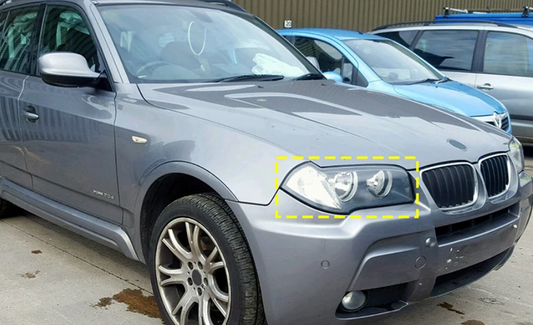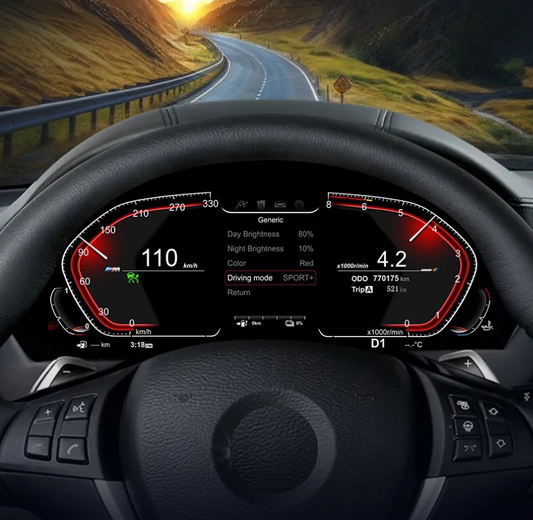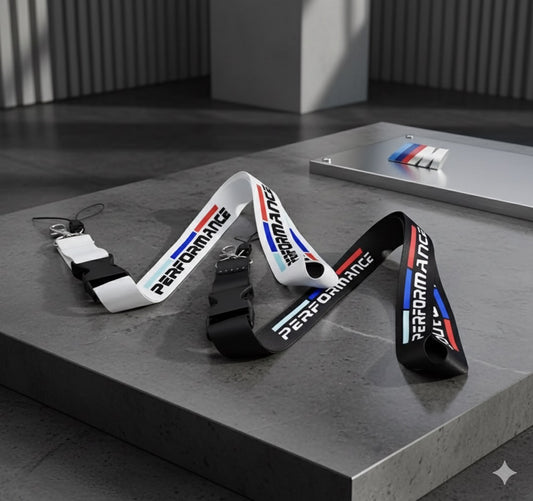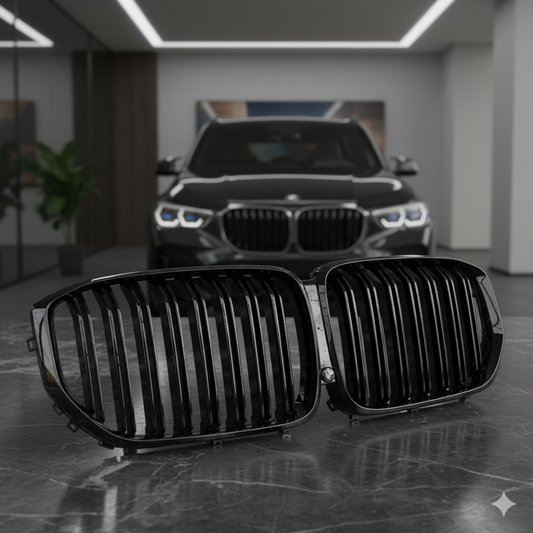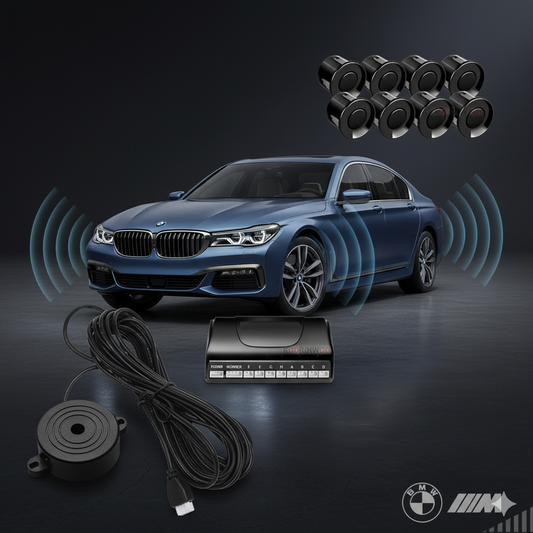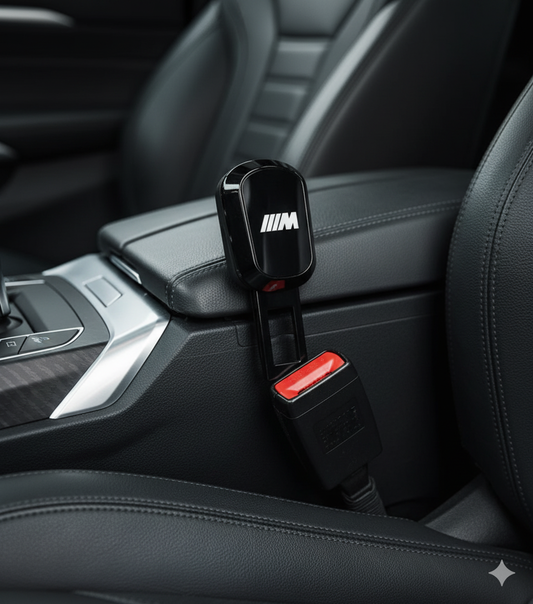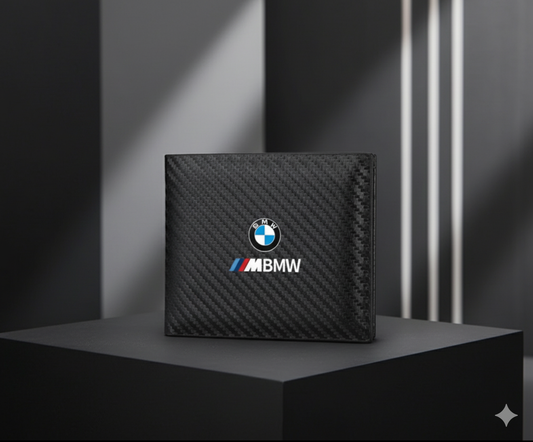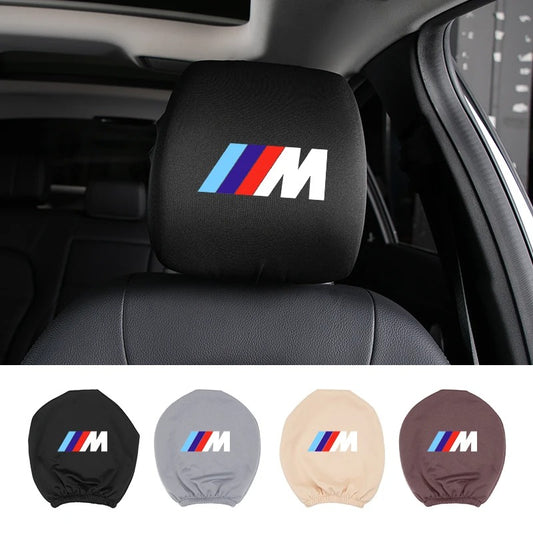
Optimize Your BMW's Performance: Complete Tire Maintenance Guide
Optimize Your BMW's Performance: Complete Tire Maintenance Guide
Your BMW deserves the best, and that includes making sure its tires are in perfect condition to deliver the optimal performance you expect from a vehicle of this quality. In this guide, we'll show you how proper tire care not only improves fuel efficiency, but also increases safety and extends the life of your tires. Proper maintenance can make the difference between an enjoyable and safe driving experience and one that could result in costly mechanical problems or, worse, unsafe situations.
Why is Tire Maintenance Important?
Take care of your tires bmw It is crucial for several reasons. Tires are the only point of contact between the car and the road. Improper maintenance can lead to reduced traction, increased fuel consumption and significant safety risks. Additionally, a bad tire can negatively affect the car's suspension and steering system, which can lead to costly repairs.
Greater Security
- Correct pressure prevents irregular wear and improves braking capacity. Inadequate pressure can cause the tire to overheat, increasing the risk of sudden failure. Maintaining proper pressure also helps prevent tires from wearing prematurely at the edges or centers, which is an indicator that the pressure is outside recommended levels.
- Regular inspections can detect damage that, if left unattended, could lead to bursts. It is advisable to perform these inspections before long trips or whenever you notice a change in the vehicle's behavior. Inspections should include a check of the tread and sidewalls for any signs of damage.
Better Performance
Well-maintained tires can improve fuel efficiency and provide a smoother ride, something all BMW owners would appreciate. Properly inflated tires reduce rolling resistance, meaning the engine doesn't have to work as hard to move the vehicle, thus saving fuel. Additionally, good maintenance helps maintain vehicle balance and alignment, which in turn improves maneuverability and driving comfort. Proper alignment also minimizes uneven tire wear, which can be costly if not corrected in time.
Key Steps in Tire Care
Tire care is not only a matter of safety, but also of economy. Well-maintained tires can last much longer, which means less replacement costs. Below are some essential steps to keep your tires in the best condition possible.
Check Pressure Regularly
It is essential to check the tire pressure at least once a month. Using a pressure gauge will help ensure they are inflated correctly. Proper pressure not only improves vehicle performance, but can also prevent internal damage to the tire structure. Additionally, it is important to adjust the pressure based on the vehicle's loading conditions and the manufacturer's recommendations, which are usually found in the owner's manual or on a label on the driver's door frame. Don't forget to check the pressure of the spare tire, since in case of emergency, you will need it to be in optimal condition.
Also, keep in mind that temperature variations can affect tire pressure. For example, in cold weather, the pressure may decrease, while in extreme heat, it may increase. Therefore, it is advisable to check the pressure in different seasons of the year to ensure that it is always within the proper range.
Rotate the Tires
Rotating tires is vital to ensure even wear. Doing this every 10,000 kilometers can considerably extend their useful life. Rotation helps balance wear that occurs due to vehicle weight distribution and handling characteristics. Additionally, it's an opportunity to inspect the tires for damage or uneven wear, which could indicate problems with the alignment or suspension. By rotating the tires, you can also check the condition of the brakes and suspension, ensuring that the entire system is in optimal condition.
There are different rotation patterns, such as crossover or forward crossover, which may be more suitable depending on the type of vehicle and tires. Consult your owner's manual or a professional to determine the best pattern for your BMW.
Visual Inspections
Perform visual inspections to detect cuts, cracks or embedded objects that may compromise the integrity of the tire. These inspections should be done regularly, especially after driving on difficult terrain or in adverse weather conditions. It's also important to check the sidewalls of your tires, as these areas are particularly vulnerable to damage that may not be visible to the naked eye. Also, make sure there are no signs of uneven wear, which could indicate alignment or balancing problems.
Visual inspections can also reveal other problems, such as the presence of bubbles on the side walls, which could indicate internal damage that requires immediate attention. If you find any problems during a visual inspection, it is crucial to address the problem as soon as possible to avoid a tire failure that could jeopardize your safety.
Know the Right Time for a Tire Change
There are clear signs that indicate it is time to change your tires. Low tread depth, uneven wear, or handling sensitivity are obvious clues. It is crucial to recognize these signs in time to avoid dangerous situations. Additionally, tires have a recommended lifespan, usually about five to six years, after which, even if they show no visible signs of wear, they may have lost their original properties. Old tires can harden and lose traction, which is especially dangerous in rainy or snowy conditions.
Tread Depth
Use a depth gauge or a simple coin trick to determine if the depth is adequate. If you are close to the limit, it is time to consider new tires. A worn tread reduces the tire's ability to channel water, increasing the risk of aquaplaning. Additionally, shallower tread depth can compromise traction in snowy or icy conditions, which is especially critical in regions with severe winters. It is not only about safety, but also about complying with legal regulations on minimum tread depth.
Additionally, it is important to check the tread for any signs of uneven wear, such as wear on only one side of the tire, which could indicate alignment or suspension problems that need to be corrected to prevent premature wear of the new tires.
Tips for Choosing New Tires
Choosing the right tires for your BMW is an important decision that can affect both the performance and safety of the vehicle. Here we offer you some tips to help you in this choice:
- Consult the manufacturer's manual to identify the appropriate specifications. This includes size, load rating and speed, which are crucial for optimal vehicle performance. Don't be swayed by the price alone; A tire that does not meet specifications can negatively affect handling and safety.
- Consider weather and personal driving factors when selecting summer or all-weather tires. If you live in an area with severe winters, you may need winter tires to ensure safety. Winter tires are designed to provide better traction in extreme cold, ice and snow conditions.
- Invest in quality tires, such as sports tires, can save costs in the long run. Although the initial cost may be higher, the durability and improved performance may offset this investment. Additionally, high-performance tires can improve the driving experience, offering better grip and response.
- Also consider run-flat tires, which allow you to continue driving for a limited distance after a puncture, which can be an advantage in emergency situations. These tires can be especially useful if you frequently drive in remote areas where access to repair services is limited.
Additionally, when choosing new tires, it is important to consider the type of driving you do most often. If you drive primarily on highways, you may benefit from tires that offer greater fuel efficiency and lower rolling noise. On the other hand, if you frequently drive on back roads or unpaved roads, you may need tires with higher wear resistance and better traction.
Conclusion
Regular tire care is an investment in your safety and the optimal performance of your BMW. Don't underestimate the importance of this essential vehicle component. Stay on top of inspections, pressure checks and rotations to enjoy the best experience behind the wheel of your BMW. Remember that proper maintenance not only prolongs the life of your tires, but also improves fuel efficiency and overall vehicle safety. Ready to learn more? Visit our online store and discover a range of products designed to keep your vehicle in excellent condition. Make sure every ride is safe and efficient by paying attention to these crucial details that are often overlooked but critical to the performance and safety of your BMW.

